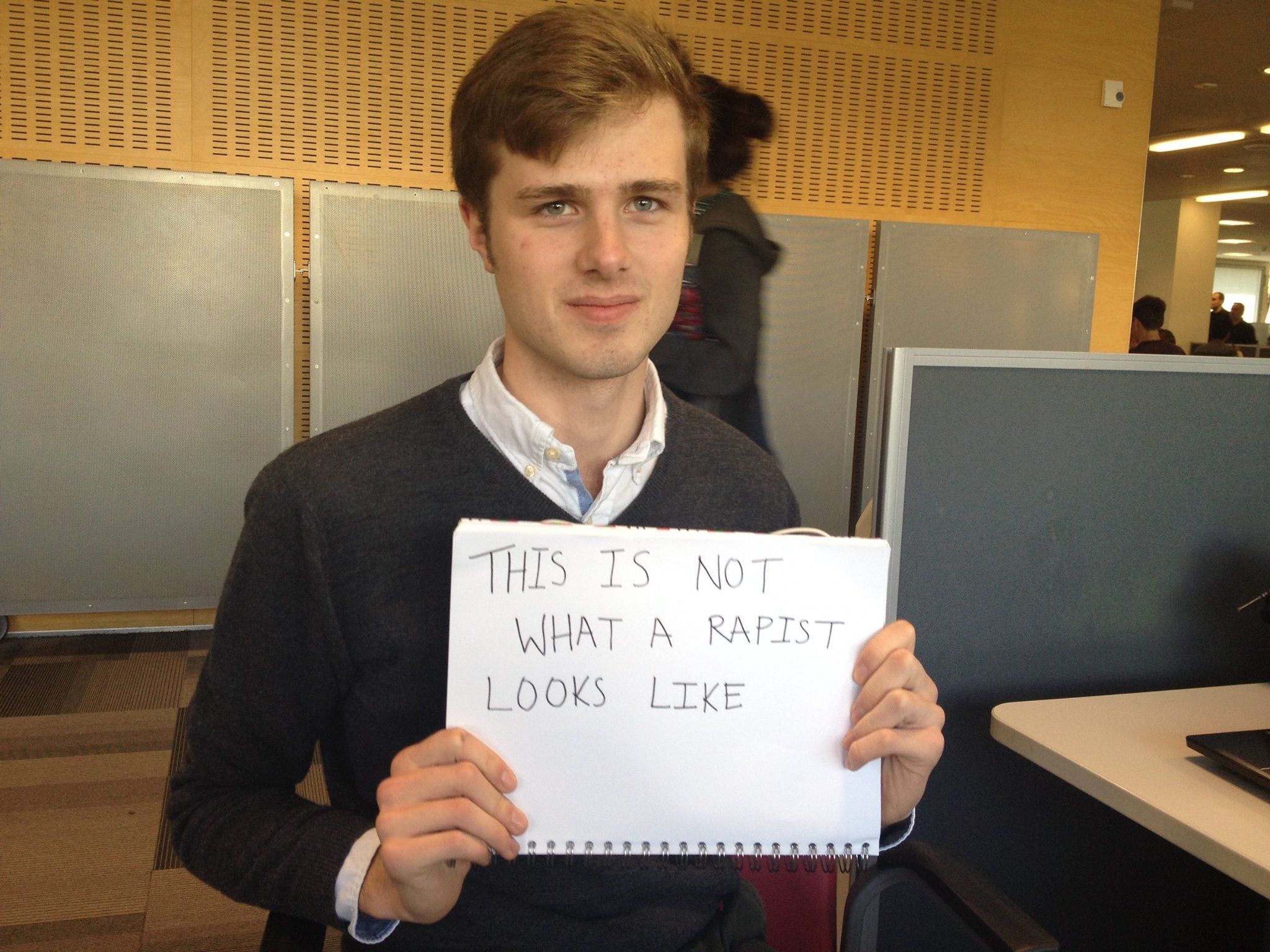Why I created sexual consent lessons for universities
A male student has made a fuss about not attending one of the workshops, but if he had taken part he would know how wrong he is

Your support helps us to tell the story
From reproductive rights to climate change to Big Tech, The Independent is on the ground when the story is developing. Whether it's investigating the financials of Elon Musk's pro-Trump PAC or producing our latest documentary, 'The A Word', which shines a light on the American women fighting for reproductive rights, we know how important it is to parse out the facts from the messaging.
At such a critical moment in US history, we need reporters on the ground. Your donation allows us to keep sending journalists to speak to both sides of the story.
The Independent is trusted by Americans across the entire political spectrum. And unlike many other quality news outlets, we choose not to lock Americans out of our reporting and analysis with paywalls. We believe quality journalism should be available to everyone, paid for by those who can afford it.
Your support makes all the difference.During the three years I've spent working on consent education workshops in universities and colleges, I don't think I've ever come across a more perfect example of why students need to learn about consent than George Lawlor's article "Why I don't need consent lessons".
Lawlor was recently invited to attend a consent workshop organised by his student union at Warwick. But instead of attending it, he wrote about how offended he was that he'd been asked to go in the first place.
“Do you really think the kind of people who lacks empathy, respect and human decency to the point where they’d violate someone’s body is really going to turn up to a consent lesson on a university campus? They won’t,” wrote the guy who refused to turn up to a consent lesson.
To be fair there are probably a lot of people like Lawlor on campuses across the UK – people who think they know it all, and that all students are aware about consent, sex and relationships. I wish this was true, but it's not. I also I wish the UK didn't have such a high rate of sexual harassment and assault on campuses, but we do.
When you take into consideration the fact that sex and relationship education isn't compulsory in the national curriculum, and that students come to university from different backgrounds and countries, believing that the majority of people are clued up on consent is wishful thinking at best.
The cherry on top of Lawlor's mess of an article is the accompanying photo – an image of him holding up a piece of paper which says “This is not what a rapist looks like”. I'm really interested in what Lawlor thinks a rapist looks like. Since he’s apparently so in the know, it’s strange that he doesn’t seem to be aware that the majority of rapes are committed by those known to the victim, or that a rapist can "look" like anyone. Ironically, this is something he would have learnt had he attended the consent workshop.
The workshops aren't some sort of finger waving lecture about sex – this couldn't be further from the truth
Since I designed the "I Heart Consent" workshop in 2013, hundreds of students have attended the sessions, some probably with similar preconceptions as Lawlor. But unlike him, they actually attended with an open mind, and learned a bit more than "yes means yes" and "no means no". In our end of pilot year report for the campaign, we found that 91 per cent of students said that they had taken away a better understanding of sexual consent from the workshop, and that 87 per cent of students said they would recommend the workshops to their peers.
The workshops aren't some sort of finger waving lecture about sex – this couldn't be further from the truth. As well as covering the common myths about rape and sexual assault, they also include discussions around the impact of slut-shaming and victim-blaming, and attitudes towards LGBT+ people. None of these are things that normally get discussed in educational spaces, yet they touch on issues that affect a huge number of people every day.
Warwick SU is one of the growing number of students' unions that are stepping up and using education to prevent sexual violence. No-one is saying that consent workshops can completely curb all sexual violence on campus, but that doesn't mean educating people about rape culture isn't necessary. Considering the levels of sexual violence across British universities, I'd say it was vital.
Join our commenting forum
Join thought-provoking conversations, follow other Independent readers and see their replies
Comments